Behavioral health crises come in many forms, and most do not fit neatly into a categorical service box. No single entity or system owns full responsibility for crises, and a single entity or system is not, on its own, sufficiently leveraged to address the multi-factored complexities necessary for a healthy system. Current practice engages multiple stakeholders at many levels of leadership and various service lines and results in unclear communication and difficulty establishing a clear clinical/decision-making team. This negatively impacts patient/family experience, length of stay and degrades the ability of the clinical staff to establish an effective team process. Given the multifactorial determinants of psychiatric boarding in the ED, potential solutions will require a variety of hospital strategies, external community strategies, ideally in collaboration with one another. To address this Mary Bridge Children's serves as the backbone to a community collaborative called Kids Mental Health Pierce County (KMHPC).
Kids’ Mental Health Pierce County is a community collaborative for which Mary Bridge Children’s Hospital serves as the backbone organization. KMHPC was formed in response to the substantial increase in pediatric crisis patients in greater Pierce County, Washington. Comprised of over 100 community professionals, agencies and stakeholders, KMHPC provides community-based multidisciplinary team (MDT) meetings designed to meet the needs of youth and families experiencing complex behavioral health presentations. Each MDT lasts 60-90 minutes and additional meetings can be scheduled. The Washington State legislature recognized KMHPC and the MDTs as a best practice in response to the behavioral health epidemic and provided funding for replication across the state. The first three regions will launch in 2022 with Mary Bridge providing training and technical support. Youth boarding in emergency departments and those with developmental considerations are priority populations served.
The use of MDT's has supported the hospital and community partners with outpatient service navigation, care coordination, behavior management strategies, transitional/discharge planning, family engagement ideas and safety planning. This resource which has no financial costs to the hospital system connects patients and families with services and supports at the right time, level and as close to home as possible.
The benefits of developing a community coalition to support the behavioral health needs has direct impact on patient care by expanding resources outside of the healthcare system that are able to address the behavioral health needs; this can also impact patient length of stay and reduce risk of readmission by providing navigation and support upon discharge.
This effort also has a benefit on the community by providing the regional resource hub to streamline and coordinate behavioral health services and resources. KMHPC offers a robust website that serves as Pierce County's clearing house for comprehensive pediatric behavioral health information and resources to school-based behavioral health navigation.
